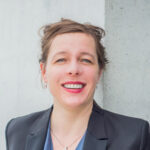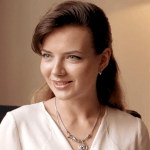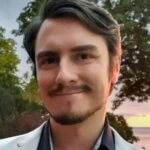Debating Europe turns the debate into a methodology. Focus Groups, involving students of European Integration, enable debate on a multitude of EU-related topics.
Debating Europe is a research project that investigates the growing gap between the European Union and its citizens, who often lack understanding of what the EU is and what happens in Brussels. The research, conducted in student focus groups across six countries, revealed how the lack of transparency in EU policy making fosters a dangerous political apathy among its citizens, even among students in EU Studies and Social Sciences.
The typical EU strategy is to tell citizens how great the European Union is. However, this is not enough, because people have real concerns and if they feel that decisions are made by someone up there and have no relevance to their lives, it creates a significant problem. When dissatisfaction meets with an attitude of “oh, I can’t change anything anyway”, then that’s a kind of dangerous passivity that is a nurturing ground for populism.
We spoke with Prof. Dr. Claudia Wiesner to learn about the ‘Debating Europe’ project, how it studied the gap between the EU and its citizens, and the potential risks this gap poses for the future of European democracy.
What were the main goals of the project ‘Debating Europe’?
There is a certain gap between the EU and its citizens, as the citizens don’t really know what the EU is or what takes place in Brussels. This opens doors for EU criticism and right-wing populism because it’s easier to develop a negative opinion about something when information is limited or unclear. Quantitative research findings show that gap, but we wanted to learn about the reasons behind the numbers, to do qualitative and interpretive research by talking to people directly in focus groups. We had gathered partners from six countries: Germany, France, Spain, Bulgaria, Romania, and Belgium, allowing us to represent big and small EU countries, northern and southern, founding states and recent members. In total, we conducted 18 focus groups, three in each country. We discussed the EU and its democratic quality with students in EU Studies and the Social Sciences, hence with a group of citizens that is best informed about the EU and, as according to quantitative findings, should be very EU-supportive.
How did you find the team for this project?
We were really lucky that many of our researchers were my long-time colleagues with an intrinsic motivation and a genuine interest in the topic. This helped greatly, as even though we had funding, everybody’s day still has only 24 hours, and the overall amount of work was enormous. The transcriptions of the focus group discussions reached hundreds, if not thousands, of pages. Then there was also an additional bureaucracy that came with the funding. It really helped that everyone was devoted to the project, and we did our best to keep everything as organised as possible to stay on track.
What was the key to organising all that work across so many teams from different countries?
The bulk of the responsibility was with me and my institution, so I hired a project coordinator who handled the groundwork of coordination, the meetings, and the protocols, while the partners ran focus groups in their countries.
Every six weeks we held online meetings, and obviously, we had emails, phone calls, Zoom calls, and mailing lists. The overall discipline was very high, so it helped greatly too. Another crucial element was our academic advisory board, which had some of the most renowned researchers in our field in the European Union. They agreed to consult us during our conferences and online meetings where we presented our research and findings.
How were the focus groups conducted, and who participated?
In a focus group, you need to reach a level of discussion that, in my opinion, isn’t achievable online. You need to have five to ten people gathered in a room, as a condition for this research method. Since the project started during the pandemic, it was nearly impossible to organise. Luckily, the students continued to attend universities with all the necessary precautions, so we were able to organise the focus groups there. The participants primarily included MA students in social sciences and EU studies. Some groups were composed entirely of local students, others included international students, even those from outside the EU.
And how did you formulate the questions and topics to get the most data out of these focus groups?
That was a really tricky thing. We actually invested a lot of work into designing these. For example, we gave the participants a selection of about 40 or 50 photos and asked them which photo they think best represents the European Union. They would naturally choose the EU passport and the European Parliament building, but in some countries, they would also choose, for example, a photo of migrants. This already triggered a discussion, and we would then guide it by asking if they think democracy in the EU works or not, what they believe are the most important EU policy fields, the most polarised policy fields, etc. The results were truly surprising, even fascinating, but also troubling.
In what ways did the students surprise you?
The students are overall well-informed and have a good grasp of EU values and fundamental principles. They have a lot of expectations of the EU, some satisfaction, some dissatisfaction. Interestingly enough, even though there are different national patterns of EU perception, the students from all six countries had very similar views on the European Union in general.
Project outcomes
The official ‘Debating Europe’ website features a comprehensive overview of the project, including its conferences, panels, courses, events, methodology, publications, and a number of related activities.
Publications
Publications from ‘Debating Europe’ examine the disconnect between EU institutions and citizens, and include research reports, detailed analyses of focus group findings, and articles on EU decision-making. These materials are designed to inform both EU policymakers and the broader academic community. Research results will be published in a forthcoming edited volume (‘Debating Europe’, Routledge) and journal special issue, both open access.
View solution
About the project
EU Youth Programme Priority:
Participation in Democratic Life
Visibility:
The ‘Debating Europe’ website features all relevant project information along with original and related publications. Dissemination of findings is ensured through different projects, conferences, and networks. The project also maintains a social media presence on Instagram, LinkedIn, and X (formerly Twitter).
Organisations involved:
Organisations involved: Fulda University of Applied Sciences (DE); Institute inter.research e.V. (DE); Centre for Liberal Strategies (BG); University of Helsinki Swedish School of Social Science (FI); University of Ljubljana – Faculty of Social Sciences (SL); Sciences Po Lyon (FR); University of Zagreb (HR)













